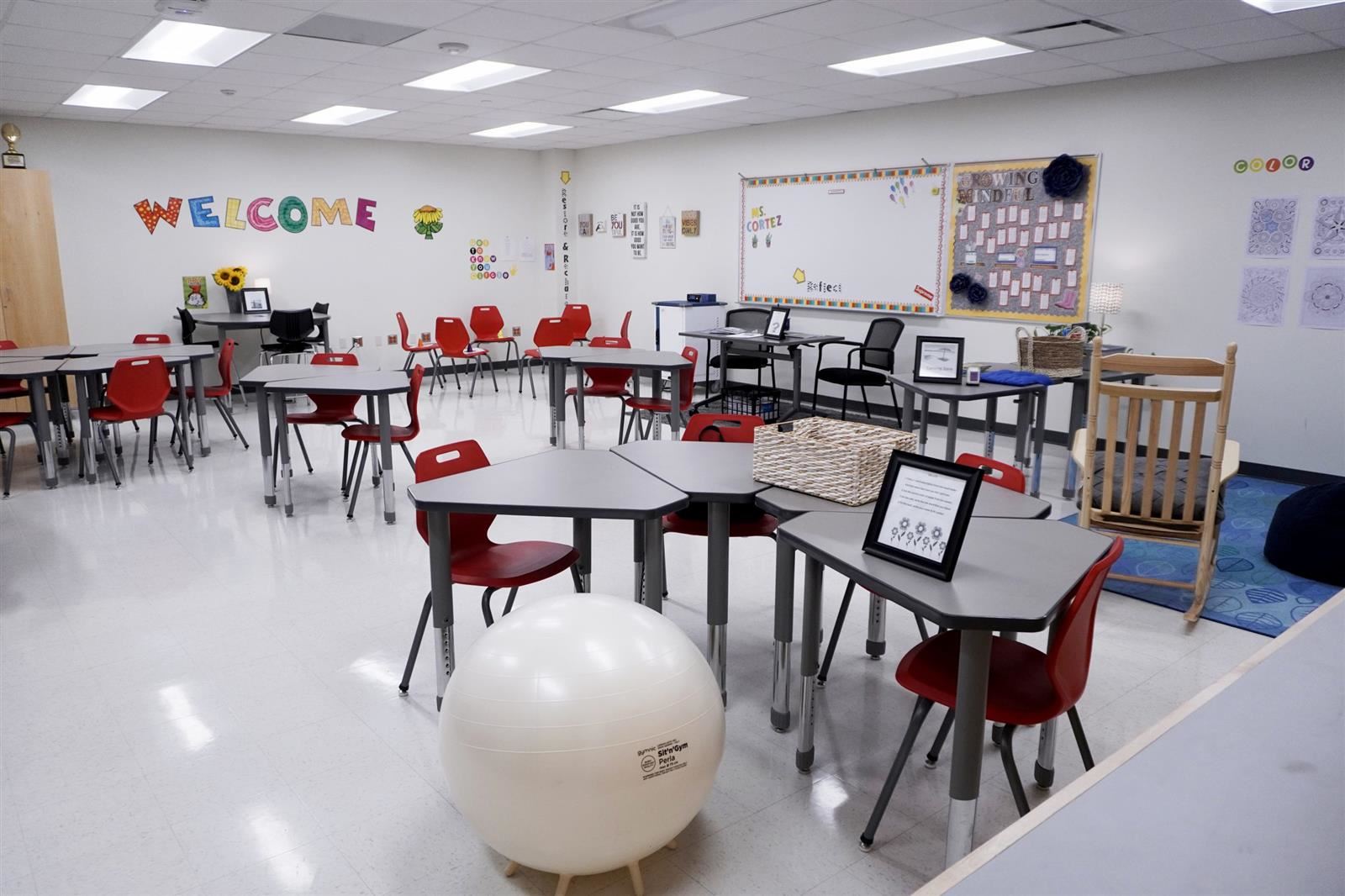- Council of the Great City Schools
- Dallas Ends Suspensions for Middle and High School Students
Urban Educator - October 2021
Page Navigation
- Nine Finalists Named for Top Award in Urban Education Leadership
- Journalist Ray Suarez to Moderate Town Hall Featuring Student School Board Leaders
- Portland Superintendent Receives National Recognition, Philly Leader to Step Down
- Buffalo Partnership Seeks to Aid Teen Victims of Gun Violence
- Dallas Ends Suspensions for Middle and High School Students
- Philadelphia Student Receives Scholarship Named after Michael Casserly
- Legislative Column
- 2021 Blue Ribbon Schools Named
- Austin, Other Districts Welcome Refugees
- Former St. Paul Superintendent Remembered
Dallas Ends Suspensions for Middle and High School Students
-
Trustees of the Dallas Independent School District recently approved a new student code of conduct that removes both in-school and out-of-school suspensions for most offenses.
Instead, the district will set up Reset Centers at all 52 comprehensive middle and high schools, each with a coordinator who will work with students who, in the past, might have been suspended for troublesome behavior.
The aim is to move away from disciplinary practices that have disproportionately impacted Blacks and other students of color. District data show that in the 2019-20 school year, of the students receiving out-of-school suspensions, 52 percent were African- American, 44 percent were Hispanic, and 2.4 percent were white. Blacks that year represented 22 percent of all students.
A year ago, in the wake of the George Floyd murder in Minneapolis, the Dallas school board adopted a resolution declaring Black lives matter and committed the district to improving racial inequities.
See the district’s Re-Imagining Suspensions report: https://go.boarddocs.com/tx/disd/Board.nsf/files/BZPRNT6E3677/$file/April%20Board%20Presentation%20Positive%20Interventions%20to%20Student%20Discipline.pdf
Vince Reyes, assistant superintendent for school leadership, called the new approach “a moral imperative, as educators and as human beings, to do something different for kids and for schools,” according to the Dallas News.

Serious misconduct, including possessing drugs or making a terroristic threat, still could result in expulsion or removal from campus.
The updated policy introduces the Reset Center concept, with educators who have been trained in building relationships with students. Those staffers also train educators on their campuses on such topics as social-emotional learning and restorative justice.
Even the Reset Center classrooms will be designed to be welcoming, with flexible seating, calming colors, fidget gadgets and sensory tools. Students will do their classwork in the room and also receive coaching on behavior improvement, according to the district.
The plan taps into the use of digital tools that students and teachers have become adept at using during the pandemic: Students in the Reset Centers will log into Zoom to follow classroom instruction.
“The whole purpose is for a child to come there, change behavior and not come back,” Sherry Christian, the district’s deputy chief of staff, told the trustees, according to the Dallas News.
There will be a formal process for teachers to follow if they identify a student to be sent to Reset, she said.
Four years ago, Dallas banned out-of-school suspensions for students in second grade and younger, and a similar policy was implemented soon after for the entire state of Texas. The new policy scrapping suspensions covers all grades.
Gerre Cortez, coordinator of the Spruce High School Reset Center, told thehub.dallasisd.org that suspensions “never really fixed why some students were continually misbehaving and doing things that got them [suspended]. Now, we’re actually trying to fix the behavior.”
The idea, she said, is to figure out “why some students are coming late to school and how we can help with that. We’re asking them why they’re walking out or sleeping in class. When they come here, we try to work with them and change their behaviors.”
Jonathan Smith, principal at David W. Carter High School, quoted in thehub, said the Reset Center approach will be “an opportunity for students to learn how to self-regulate and self-govern their behaviors. … We believe that discipline is not about being punitive, but it’s about teaching.”
The concept seems to be working. A recent presentation by the Dallas school board showed that 538 unique students were sent to Reset Centers since the beginning of the year for direct support from a clinician or behavior specialist. Out of those 538 students, only 43 students returned a second time for further services to address immediate needs.
“These statistics demonstrate that most students can successfully return to class after a period of intervention,” said Trustee Karla Garcia.
Media Contact:
Contact Name
Contact@email.com
(000) 000-0000
Contact Name
Contact@email.com
(000) 000-0000
Contact Name
Contact@email.com
(000) 000-0000
Media Contact:
Contact Name
Contact@email.com
(000) 000-0000
Contact Name
Contact@email.com
(000) 000-0000
Contact Name
Contact@email.com
(000) 000-0000


